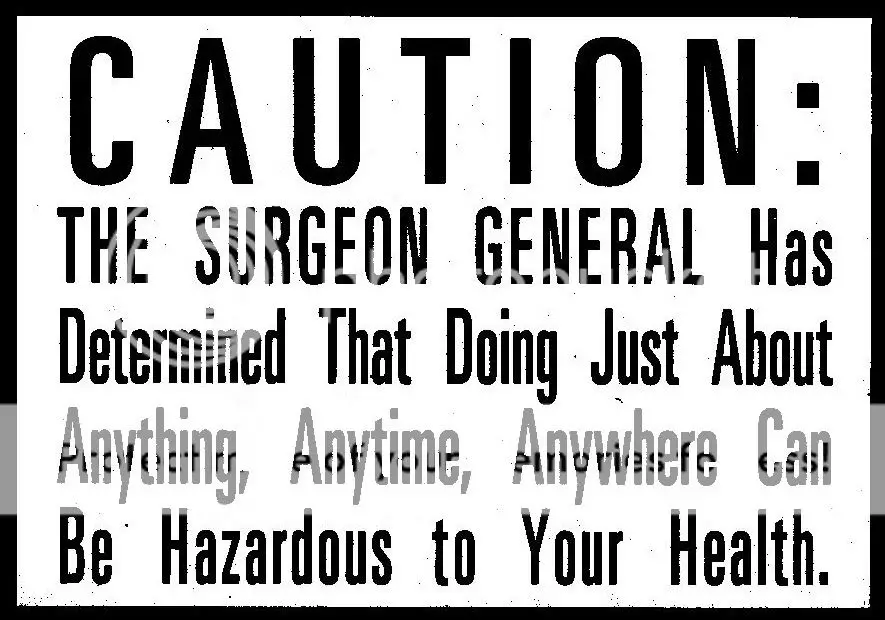From the book; Stories behind everyday things, from Readers Digest, 1980.
"If Evil Knievel represents one perception of the motorcyclist, a new and very different image has also emerged. In large measure, this stemmed from the energy crisis, which led people from all walks of life-brokers, teachers, housewives- to take to the motorcycle saddle as a means of reducing gasoline bills. Some purchased traditional, high-powered cycles, but the trend appeared to be toward a little two-wheeled, motorized vehicle all but unknown in the United States until the mid-1970's-the moped. About the size of a bicycle, the vehicle has a small motor (about half as powerful as that of a lawnmower) and pedals: hence the name moped.
While the moped's use is curtailed by bad weather because of it's relatively poor traction, perhaps most limiting of all is the fact that it is infinitely more dangerous than it looks. About 17 percent of all vehicular-related deaths in France involve mopeds, and a California policeman has remarked that moped drivers are all but guaranteed a hospital stay should they become involved in even a minor collision. As one Florida expert puts it, the moped 'will go fast enough to get you in trouble, but not fast enough to get you out'."
........................................................................................................
It was the introduction of government regulation and application of vehicle standards for mopeds coming into Canada in the mid to late 1970's, combined with the introduction of compulsory vehicle insurance requirements, and the requirements for basic rider licencing requirements that killed off the moped .. the root cause being that they were involved in a very high number of MVA's disproportionate to their numbers on the road.
The call for Freedom, to ride what you want to ride, and the way that you want to ride it, is justifiably curtailed in a country with socialized healthcare, where everyone else ends up paying through their taxes, for your dumb-ass moves.. they were a big problem for escalating healthcare costs (along with regular motorcycles, etc) back then.
Pre-legislation, it was a comparative Wild West for most 'recreational vehicle classes'. Post-legislation, the Moped market virtually disappeared, while the regular motorcycle market shrank down/collapsed to a shadow of it's former self by the end of the 70's, before gaining strength again through renewed popularity with RUB's, Baby boomers and affluent youth in the very early 1990's.
I've seen Jawa's of that era, as well as many of the cheaper Italian/east european moped variants... generally, they weren't particularly well built for safety and durability in mind, they were cheaply built for export in exchange for hard currency, first and foremost.
Increasing urban traffic density in the 1970's, combined with generally larger, and faster standardized roadway speed limits, also contributed to the moped's demise. The moped's brakes, suspension, and power output, is generally a poor match to that North American environment, vs the European environment for which they were better suited for.
This same trend also killed off other low-speed motor vehicles in the motorcycle market. Honda's bread and butter, the Honda Cub and variants, was a huge hit throughout the 1960's. By the late 1970's, it's Canadian market fortunes had long waned. By the early 1980's, it was a discontinued model in the North American market entirely - although it continued in all it's variants to be a market success elsewhere in much of the world, right up to the late 2000's.
My first 'motorcycle' was a 1966 Honda C-65 Cub. 63cc's of step-thru independence from the bicycle at age 16. This was the mid-1980's. I rode it *1* year, and my father told me to buy a frigging real motorcycle that could maintain an average road-speed, with the traffic of the day. He saw it as being in very real danger of being accidented because of aggressive or careless drivers doing something, that the step-thru couldn't counter-act through acceleration, braking, or in it's general lack of stability or traction vs a pothole or skinny-tires. I moved up the next year to a 200cc that could much better keep up with urban traffic - and he was much happier, and so was i. I did keep that C-65 for a number of years after, purely for intrinsic value - it had first been my Mother's, and then my Grandfather's, from the start of the 1970's.
He was right.
Today, I have a cosmetically modded '82 Honda C70 Passport in the garage that is for intrinsic, non-road, non-plated pleasure use only. I would have to be near-suicidal to want to licence, insure and ride the damn thing on today's road-ways. The Honda Cub was a vehicle (with similar proportions to a classic moped) that was designed in the 1950's. in North America, the height of their market popularity peaked in the mid to late 1960's, and then almost entirely fell from favor by the mid-1970's - since then time, progress, and general road conditions have basically rendered obsolete this vehicle class, in the intervening years. I see the moped falling into the same class of obsoleted vehicles, in terms of safe and regular road usage.
I understand that some can ride these Mopeds and MAB's in regions where legislation is much more lax, and registration and licencing standards are next to non-existent, and all the power to you if you can.. but not for me, by choice.
The article is accurate - in that by 1980, they were indeed already a vehicle of a by-gone era.
In my own opinion, of course.





